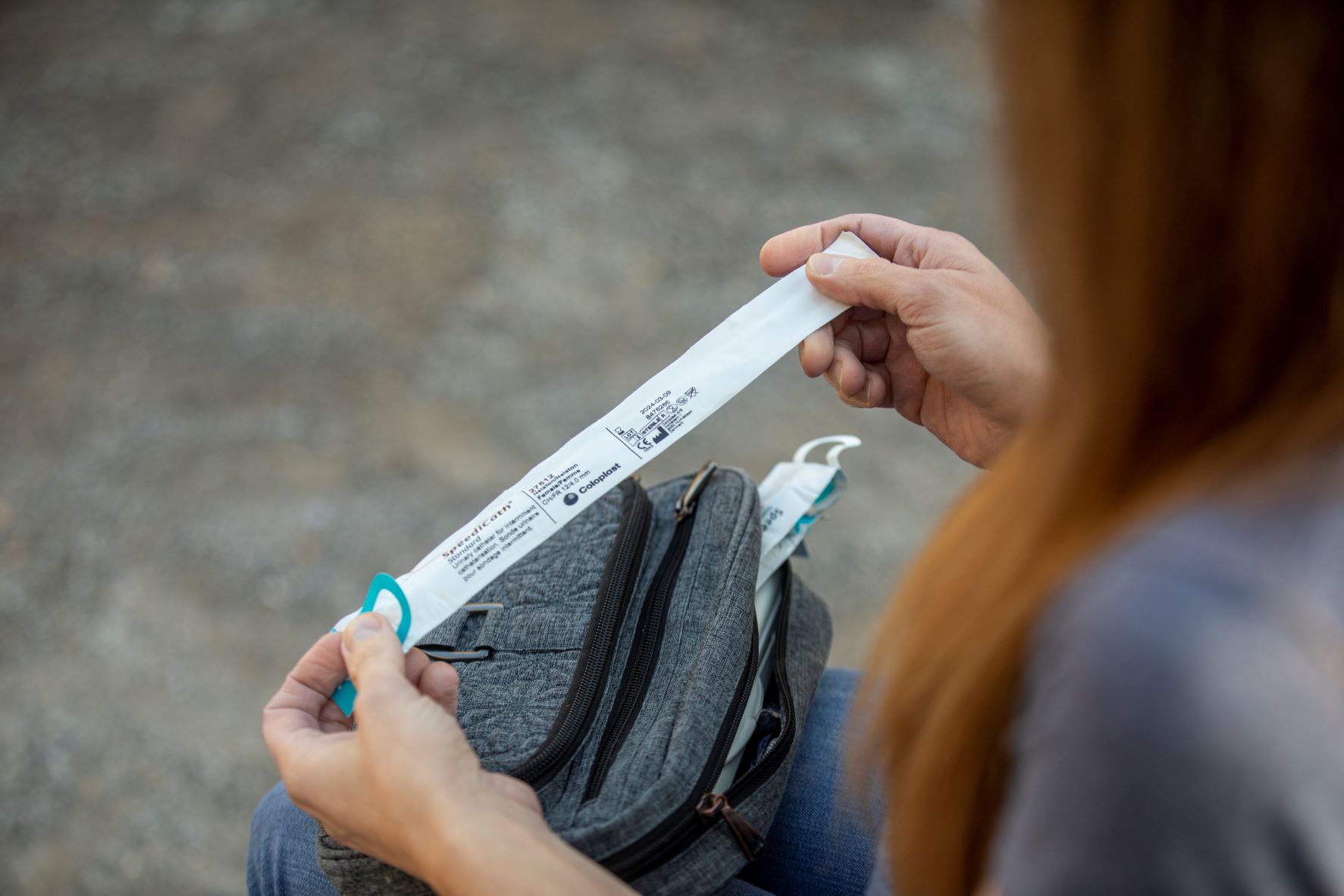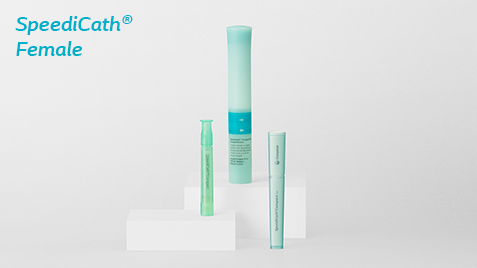https://unbfpsyc.ca1.qualtrics.com/jfe/form/SV_3QU7KNgS3G0aPHw
What Are Hydrophilic Catheters?

Whether you are a new catheter user or have been using catheters for quite some time, you may have heard the term “hydrophilic” when discussing intermittent catheters with your healthcare provider. This term is often used in comparison to an uncoated catheter. But what does hydrophilic actually mean?
In this article, our friends at Coloplast go into more detail from their perspective about what exactly makes a catheter hydrophilic, how it can help protect the urethra, and why it can be beneficial to your catheterization routine.
What makes a hydrophilic catheter different from an uncoated catheter?
Uncoated catheters require added gel lubrication. This means you must evenly distribute the gel onto the catheter without introducing bacteria. The gel can be messy and hard to apply uniformly. A poorly applied coating increases urethral friction with catheter insertion and removal, causing potential urethral trauma.1 And that’s the last thing you want from your catheter!
Protecting the urethra from damage, complications, and UTIs is important.
Did you know the average intermittent catheter user catheterizes 1,825 times every year?2
Hydrophilic catheters are ready to use right out of the package, may increase comfort, and can help reduce risk of urethral trauma. They support smooth insertion resulting in less trauma and friction compared to uncoated catheters.3 Hydrophilic catheters are pre-lubricated, so you do not have to worry about carrying or applying lubrication, which also means fewer steps for you.

But, not every hydrophilic catheter is the same!
Some hydrophilic catheters have dry spots where the coating does not adhere to the catheter during insertion or withdrawal. Or insufficient hydration may cause the coating to dry out over time and become rough or sticky.
That is why all SpeediCath® catheters come with a unique hydrophilic coating, featuring our Triple Action Coating Technology. This coating consists of three strongly bonded elements, designed to protect the urethra in three ways:
1) Stays bonded: It stays bonded during insertion and withdrawal due to a proprietary basecoat that is covalently bonded to the catheter surface for an even coating without dry spots.
2) Stays smooth: It stays smooth because the polymer topcoat enables excellent water absorption for low friction, smooth insertion, and reduced discomfort.
3) Stays hydrated: It stays hydrated with a special water-based solution that swells the coating and makes it instantly ready to use.
Since SpeediCath® catheters are pre-lubricated and instantly ready-to-use right out of the package, they eliminate the need for additional lubricants or time spent waiting for a catheter to hydrate. SpeediCath® catheters are easy to use, convenient, and stay lubricated during insertion and removal, designed to help protect the urethra!
If you are interested to learn more, get in touch with Coloplast’s Care Advisors at 1-866-293-6349 or email them at casupport@coloplast.com.
- Stensballe J, Looms D, Nielsen PN, et al. Hydrophilic-coated catheters for intermittent catheterisation reduce urethral micro trauma: a prospective, randomised, participant-blinded, crossover study of three different types of catheters. Sponsored by Coloplast. EurUrol2005;48(6):978–83, n=49.
- European Association of Urology Nurses. (2013) CatheterisationUrethral Intermittent in adults. https://nurses.uroweb.org/wp-content/uploads/2013_EAUN_Guideline_Milan_2013-Lr_DEF.pdf. (Reports 4-6 catheterization per day for an adult patient. Assuming 5times a day for an average adult, it is calculated to be 1825 catheterization/year).
- Stensballe J, Looms D, Nielsen PN, et al. Hydrophilic-coated catheters for intermittent catheterisation reduce urethral micro trauma: a prospective, randomised, participant-blinded, crossover study of three different types of catheters. Sponsored by Coloplast. EurUrol2005;48(6):978–83, n=49.
Prior to use, refer to product labeling for complete product instructions for use, contraindications, warnings and precautions.
Important Safety Information: SpeediCath® catheters are prescribed for use by adults who require bladder drainage due to urinary retention or post void residual volume (PVR). Before use, carefully read all of the instructions. Call your doctor if you think you have a UTI or can’t pass the catheter into the bladder. For more information regarding risks, potential complications and product support, call Coloplast Corporation at 1-866-293-6349 and/or consult the company website at www.coloplast.ca.

